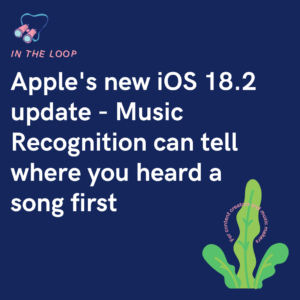Copyright infringement refers to an instance or multiple occasions where someone breaks a form of legal protection put in place to stop people copying, and stealing the content. It sounds straight forward, but like with anything, there are grey areas within.

Copyright infringement occurs when someone takes part or all of another person’s work and uses it as their own. Often it is adapted to sound slightly different, but the base is still there. There can be occasions where it’s extremely obvious, however often this isn’t the case. It can be a really difficult one to figure out, because sometimes, the similarities are so small.
Within music, copyright is a huge topic. It’s not as simple as someone taking lyrics from another artist and using them within their own track. Of course, this can happen, but quite often it comes down to small things such as the chords used, or a certain beat within the songs. This can be hard to prove. Did the artist mean to copy the sound elements?
Ed Sheeran vs Marvin Gaye
Is there even enough similarities to confirm it’s copyright, or is it just a harmless coincidence? Recently, famous singer Ed Sheeran has been in the public eye. Not because he’s released new music. Instead, it’s down to a song he released a long time ago. The singer was accused of infringing on the right’s of Marvin Gaye, but, did he?
After a two-week trial, the verdict came back that Ed Sheeran was in fact innocent, and could be cleared of all accusations. He had been in court over his song Thinking Out Loud, because it was said it took elements of the Marvin Gaye classic Let’s Get It On. The jury came to this conclusion after just three hours.
The lawsuit was filed originally in 2016. Heirs of Ed Townsend who co-wrote the 1973 track with Marvin Gaye accused Ed Sheeran of taking elements of the song. Ed Sheeran denied this, saying he had created this song with a friend of his own and none of it was inspired by or a replica of the track in question. He is in fact extremely angered by the situation.
The Judge backed Sheeran
The Judge agreed by saying “independent creation is a complete defence, no matter how similar that song is.” When it comes to musicians creating something new, it’s difficult to find a sound that has never been used. Therefore, it’s highly likely certain chords and song foundations sound similar. In fact, a forensic musicologist also believes this.
Joe Bennett, a professor and musicologist said “The world I want to live in is one where nobody sues anyone for a one- or two-bar melodic or harmonic similarity, because those similarities can so easily occur through coincidence.” How does any artist create new music if all their bars are being compared to others who have come before them?
Ed Sheeran was so affected by these claims that he had said he would quit his music career if the jury fell in favour of Marvin Gaye. As an artist who has worked hard on something, why should you be punished for creating music? However, Marvin Gaye’s family haven’t only gone for Sheeran. They have been to court before.
Robin Thicke and Pharrell Williams took a hit previously
In fact, in 2015 they won a $5.3 million lawsuit claiming Robin Thicke and Pharrell William’s song Blurred Lines copied Marvin Gaye’s Got to Give It Up. Copyright should be in place for when songs obviously mimic each other. They shouldn’t be used as a way of earning money off someone else’s career. Especially when the elements don’t completely match.
Ed Sheeran played his song during the hearing. He spoke about where the song came from and mentioned his friend Amy Wadge who was part of the process. The song was inspired by his grandparents, and a new relationship he was in. Both contributing to the overall lyrics. It’s been said the chords in question have been used multiple times before Marvin Gaye took to them.
It definitely has to be a case by case situation. Not every track that has similar elements to others will be a copyright infringement. Instead, many will be coincidences. It’s certainly a hard one to track though. Artists shouldn’t be able to put forward a case without clear evidence their music has been copied because it can destroy careers.






